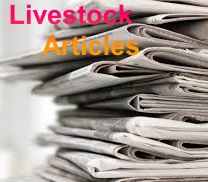Eastern Cape Small-scale Farmers Receive Nguni Bulls To Improve Production
Eastern Cape small-scale farmers receive Nguni bulls to improve production
By Octavia Avesca Spandiel | 30 January 2025 | 2:28 pm
Nonceba Kontsiwe, Eastern Cape MEC for Agriculture, called on farmers to expand their operations and venture into the entire red meat value chain to make a meaningful impact on the economy.
MEC for Agriculture Nonceba Kontsiwe handed over 18 Nguni bulls to communal and emerging farmers from Amathole, Alfred Nzo, OR Tambo and Joe Gqabi Districts. Photo: Facebook | Eastern Cape Department of Agriculture
This appeal was made during a handover event where 18 Nguni bulls were distributed to 16 communal and smallholder enterprises from the Amathole, Alfred Nzo, OR Tambo, and Joe Gqabi Districts.
The initiative formed part of the Livestock Production Improvement Scheme (LPIS), designed to empower small-scale farmers and help them participate in formal markets.
Kontsiwe told Farmer’s Weekly there is a need for growth and economic participation, and encouraged the beneficiaries to maximise the investment.
“We want you to grow and earn something out of this investment. We need you to become successful and recognised business people through this support,” she said.
She also urged farmers to work together, and said that a lack of unity among black farmers was a challenge to economic progress.
“Go and change people’s lives. Unite as farmers because I have noticed that black farmers are not united,” she said.
Kontsiwe also said that it was important that black farmers strengthened their presence in the commercial red meat sector.
Monitoring and support for beneficiaries
Kontsiwe said that the Eastern Cape Department of Agriculture and the legislature’s portfolio committee would monitor the progress of the investment.
“Government oversight will ensure that the beneficiaries successfully integrate into the mainstream agricultural economy,” she said.
One of the beneficiaries, Prince Langa Mavuso, who received a bull for his co-operative, told Farmer’s Weekly how grateful he is and mentioned agriculture’s role in the Raymond Mhlaba Municipality, where it is a key economic activity.
“We could change the landscape of the municipality by investing in agriculture. We are very thankful for this investment; our lives will change. This will go a long way in developing this area,” he said.
Mavuso added that both the Nkobonkobo and Mavuso villages would benefit from the bull, which would help improve local livestock quality.
Another beneficiary, 26-year-old Emihle Mkosana of Ntonga Red Meat Youth Farmers, said his group applied for a bull to improve their herd and produce high-quality meat.
“This will help us benefit a lot by producing the required meat for the markets,” Mkosana said.
Genetic improvement and economic growth
According to Kontsiwe, the LPIS was designed to improve the genetic quality of livestock among communal and smallholder farmers, enabling them to compete in formal markets. The programme also sought to promote the participation of youth, women, people with disabilities, and military veterans in the farming sector.
“The bulls will play a vital role in improving livestock production and ensuring the sustainability of smallholder enterprises in the province,” she said.

.jpg)






